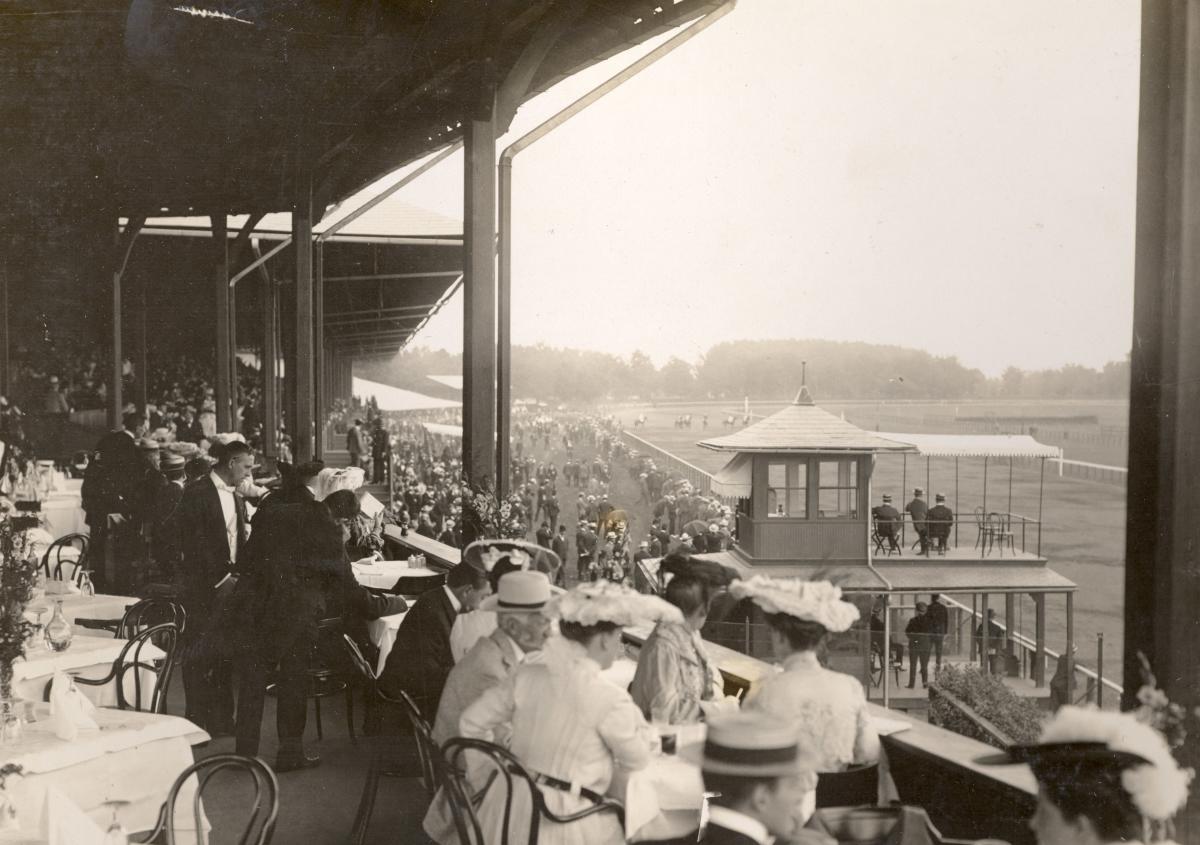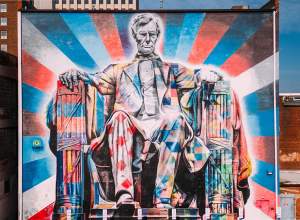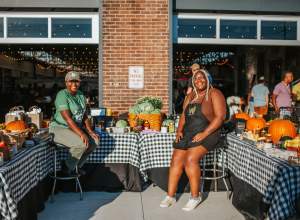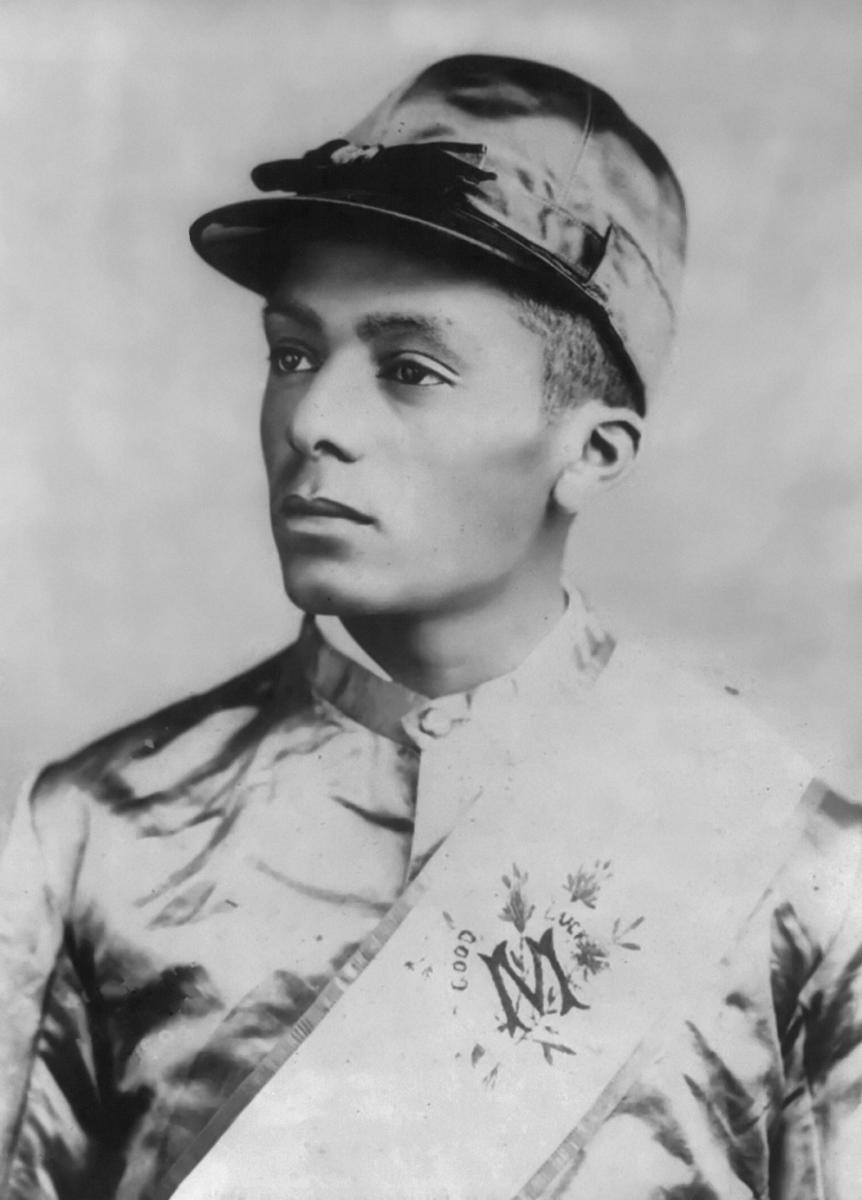When it comes to Thoroughbred racing, it’s easy to focus on the horses. (We can’t blame you—they’re pretty awesome. Just ask anyone here in Lexington.) But just as important as the horse is the jockey—the one helping guide, control and urge on the horse during the heat of the race, making split-second decisions that mean the difference between a win and a loss.
During the nineteenth century, as Thoroughbred racing was really starting to heat up and grab the country’s attention, many of those jockeys were African American. Black jockeys were among the sport’s best, winning the biggest races and setting records that would stand for decades. Thirteen of the fifteen riders in the first Kentucky Derby were African American—and 16 of the first 28 derbys were won by African-American jockeys.
These men were national celebrities during their day—true rockstars of the sport. And many of them called Lexington home. Here’s a few of their stories.
The Original Champion: Oliver Lewis
You might know that the winner of the first Kentucky Derby (1875) was a horse named Aristides. But you might not know that he was piloted to victory by a 19-year-old Black man and Fayette County native named Oliver Lewis.
Aristides was one of two horses from the same stable riding in the race—the other, Chesapeake, was the favored pick. Lewis and Aristides were supposed to set a fast pace, tire the field out, and then pull back to allow Chesapeake to win. But when Chesapeake fell back in the pack, Lewis changed the plan, urging Aristides ahead to win the first Derby and earning them both a place in racing history.
The Rockstar: Isaac Burns Murphy
Oliver Lewis paved the way, but Isaac Murphy erased all doubt, proving to the world what Black jockeys were capable of. He set a standard that few jockeys have ever come close to, winning three Derbys and winning somewhere around 44% of his races—an astonishing record. (Every year, the National Turf Writers Association gives an award to the jockey with the highest win percentage. It’s called, appropriately, the Isaac Murphy Award.)
The son of a slave, Murphy was born on a farm near Frankfort, Kentucky in 1861. He won his first Kentucky Derby in 1884. He won it again in 1890 and 1891. In the years between, he was the toast of the racing world, reportedly earning $15,000 to $20,000 a year in a time when the average family income was in the range of $1,200. He was a national celebrity—when he bought a new house, it made the front page of the New York Times. When he was interviewed after a famous victory aboard a racehorse named Salvator in 1890, he said it all: “I ride to win.”
The Wunderkind: James “Soup” Perkins
James “Soup” Perkins won his first horse race at the age of eleven—which meant he had years of experience under his belt when he won the 1895 Kentucky Derby at the age of fifteen. Born in Fayette County in 1880, James was raised in the horse industry: His father, a former slave, was a Standardbred horse trainer. Two of his brothers would also become well-known horse trainers.
Soup’s unique nickname came from his love of, you guessed it, soup (easy enough). That unforgettable name, combined with his youth, made him a memorable figure on the track, and his talent made him successful—he was earning up to $5,000 a year at his peak. Along with Alonzo “Lonnie” Clayton (a Missouri native and a fellow Black jockey), Soup Perkins holds the record for the youngest jockey to win a Kentucky Derby.

Segregation: On and Off the Track
No one can deny the success and talent of African American jockeys like Oliver Lewis, Isaac Murphy, Soup Perkins, and so many others. But racism and systemic prejudice began to force African American jockeys off the track around the turn of the twentieth century. During races, white jockeys would run their horses into those ridden by Black jockeys, boxing them in or riding them into the rails while officials looked the other way. Owners and trainers would deny Black jockeys the opportunities to ride their horses. Some members of the industry called for segregated racing.
By 1904, it was hard to find any Black jockeys at major racetracks. It was a drought that lasted for the better part of a century. In 2000, an African American jockey named Marlon St. Julien rode in the Kentucky Derby—the first Black jockey to ride in that race in 80 years.
Exploring a Legacy
While the stories of these jockeys were downplayed and hidden for many years, they have made a resurgence in the town they called home. Oliver Lewis now has a road named after him—Oliver Lewis Way, a major connector and the gateway to the Distillery District. You can take a stroll through the Isaac Murphy Memorial Art Garden, located on land once owned by Isaac in Lexington’s historically African American east end. That garden is one of the endpoints of Lexington’s Legacy Trail, which has plaques about Lexington’s African-American jockeys displayed along its 12-mile length.There's even a Soup Perkins Alley near downtown!
You can visit Isaac Murphy’s grave at the Kentucky Horse Park. It’s located just a few feet away from that of another racing great: Man O’ War. While you’re at the Horse Park, stop by the International Museum of the Horse and explore their Black Horsemen of the Kentucky Turf exhibit.
You can visit the original resting places of these three jockeys and so many other members of Lexington’s early African American community at African Cemetery No. 2, located on East Seventh Street in downtown Lexington. Their stories and their names deserve to be remembered for the role they played in shaping the sport of Thoroughbred racing. They set the bar high for the generations of jockeys that came after them, and we’re honored that they called Lexington home.

















